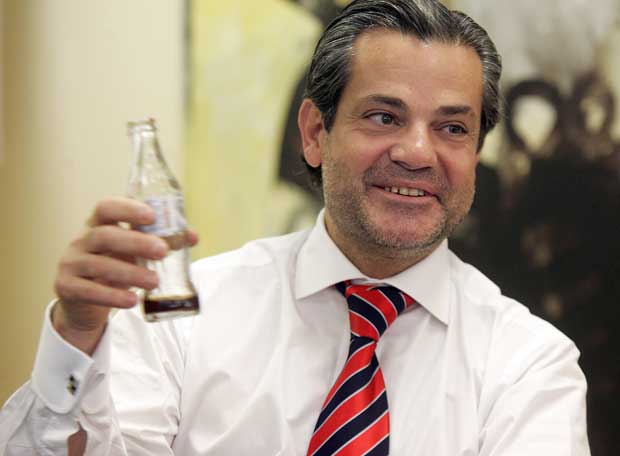Marcos De Quinto. President Coca-Cola Spain

Our guest began by providing some information about the company he leads. For instance, he mentioned that Coca-Cola Spain is the third largest operation of Coca-Cola in the world, following the USA and Japan. This places them first globally in terms of profit per head. Over the past twelve years, the company has experienced remarkable success, significantly increasing both sales volume and market share percentage, particularly in the sports beverage sector, where they account for 94% of sales, surpassing private label brands and PepsiCo.
Furthermore, Mr. Marcos de Quinto wanted to highlight that, contrary to common belief, Coca-Cola is the most Spanish brand in the sector. Although 50% of the profits belong to the multinational, the other 50% goes to bottling and distribution companies that are 100% Spanish-owned.
Regarding marketing, the President of Coca-Cola began by explaining that good marketing is one that achieves growth in volume and market share while allowing for price differentials compared to competitors. And Coca-Cola Spain has achieved this.
In 1996, two liters of Coca-Cola were 10% more expensive than Pepsi and 76% more expensive than private label brands. By 2008, the same two liters of Coca-Cola were 17% more expensive than Pepsi and 152% more expensive than private label brands. The marketing approach that led to this success has always been more emotional than rational, not relying on “purely technical reasons” to buy their products, but presenting different perspectives that evoke emotions and are therefore less replicable and more effective.
Regarding the current situation, our guest pointed out that for the first time, the company is facing headwinds due to the economic crisis, energy issues, and climate change. Unfortunately, in his opinion, those with the power to resolve this situation, governments and companies, have very short-term agendas. Simultaneously, in the business environment, advertising is becoming increasingly ineffective due to its high cost, saturation, and excessive regulation. Additionally, a new concept of “black marketing” is emerging, characterized by the unethical use of content to discredit categories. This phenomenon is causing significant harm, as negative comments are always remembered more than positive aspects. There’s also a crisis of theoretical models, which requires the ability to work without models: if something works, you just need to dive in and do it.
However, it’s important to remain optimistic and collaborate. As highlighted by Mr. Marcos de Quinto, “we are all adversaries and allies.” It’s not wise to sever relationships with anyone because someone who seems like your opponent today could become your most important ally tomorrow. It’s also important, in times of crisis, to rescue concepts and not be constrained only by budgets. Ideas are what truly matter; if they are lacking, the problem is more serious than a lack of funds.
